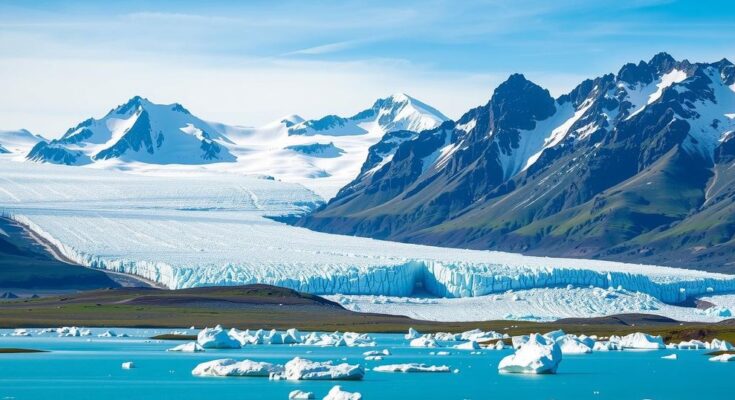Greenland holds early parliamentary elections influenced by U.S. President Donald Trump’s interest in the island’s strategic resources. With a population advocating for independence, Greenlanders are focused on maintaining control over their future while navigating heightened international attention amidst local discussions on governance and environmental concerns.
Greenland, with its population of about 56,000, is undergoing early parliamentary elections that reflect a significant interest from U.S. President Donald Trump, who seeks control over this strategically located island rich in rare earth minerals. Although Trump’s intentions are not directly associated with the elections, they greatly influence the discussions among Greenlanders regarding their future governance.
The population of Greenland, primarily of Indigenous Inuit descent, is increasingly advocating for independence. Many Greenlanders express sentiments against becoming part of the United States, viewing their destiny as one they must control independently. Despite generally favorable opinions towards Americans, a sentiment highlighted by local relationships with U.S. military installations, most residents favor establishing a stronger bond with European nations to enhance their sovereignty.
Political discourse in Greenland is shifting, largely due to heightened international attention from media outlets worldwide. This election period has prompted local candidates to advocate for rapid measures towards independence. Even those who may support Trump affirm their desire for Greenland to remain open for business, yet not for sale, emphasizing their commitment to self-determination.
Polling locations in Nuuk will serve as community hubs, where political parties will interact directly with voters through various local offerings, including traditional foods. Although we can expect unofficial results soon after the closing of polls, fully certified results will take longer to compile due to the island’s challenging transport logistics.
Greenlanders recognize the value of their natural resources but equally maintain strict environmental protections. The adverse weather conditions pose challenges for resource extraction, leading to debates on the viability of these endeavors. During the recent storm, residents found solace indoors, reinforcing community bonds in the face of external pressures.
In conclusion, the ongoing elections in Greenland underscore a critical moment in the region’s quest for autonomy and self-governance amid external interests, notably from the United States. While many Greenlanders support the notion of independence and stress their right to control their future, the conversation remains cautious and locally focused. The interplay of politics, environmental concerns, and community identity shapes the unique backdrop of this election, reflecting a determined effort by Greenlanders to navigate these complex dynamics while preserving their heritage.
Original Source: www.2news.com




